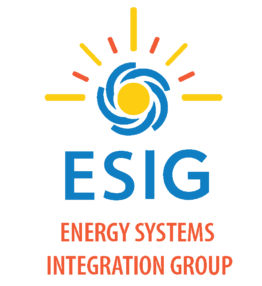
- This event has passed.
Webinar: Wide-Area Resource Adequacy Assessments: Probabilistic Planning for Interconnected Grids
October 16 @ 4:00 pm - 5:00 pm EDT

Featured Speakers: Derek Stenclik, Founding Partner, Telos Energy and Aaron Schwartz, Senior Engineer, Telos Energy
Webinar Abstract: This webinar will describe the need for, and key elements of, interconnection-wide or continental probabilistic resource adequacy assessments. It will review ESIG’s new report from the Resource Adequacy Task Force, which highlights the need for wide-area approaches to reliability planning. Although North America’s grids are among the most interconnected in the world, resource adequacy planning remains fragmented across dozens of utilities, system operators, and planning coordinators. A wide-area resource adequacy assessment, grounded in consistent scenarios, weather data, and probabilistic methods, can help align assumptions across regions, improve evaluation of extreme events, and provide a clearer picture of system-wide risks and opportunities. This webinar will discuss the report’s findings, including the critical elements of scenario-based planning; transparent modeling of interregional transfer capability; and the use of wide-area, correlated, and consistent weather data. Participants will leave with an understanding of how coordinated, probabilistic wide-area resource adequacy assessments can help reduce costs, harmonize accreditation, and strengthen local and regional planning.
About the Speakers: Derek Stenclik is a Founding Partner of Telos Energy, an analytics and engineering firm specializing in renewable integration, grid planning, and power system reliability. Derek is a recognized expert on wind, solar, and battery integration, resource adequacy, and power markets. Prior to founding Telos Energy, he spent eight years in GE Power’s Energy Consulting department as the Senior Manager of Power System Strategy and holds a master’s degree in Applied Economics from Cornell University.
Aaron Schwartz is Senior Engineer at Telos Energy, where he supports the firm’s work on utility resource planning and grid modeling. Aaron was most recently a manager on RMI’s electricity program, where he supported government, utility, and non-profit partners in advancing climate-aligned utility planning. Aaron holds a Master’s degree in Technology and Policy from MIT, and a Bachelor’s degree in Operations Research and Financial Engineering from Princeton University.
Moderator: Erik Ela, Director of System Operations and Electricity Markets, ESIG
Registration Cost: FREE
Q&A Session: We will be using the Slido platform for Q&A. Please submit your questions and follow along during the event at this link.

